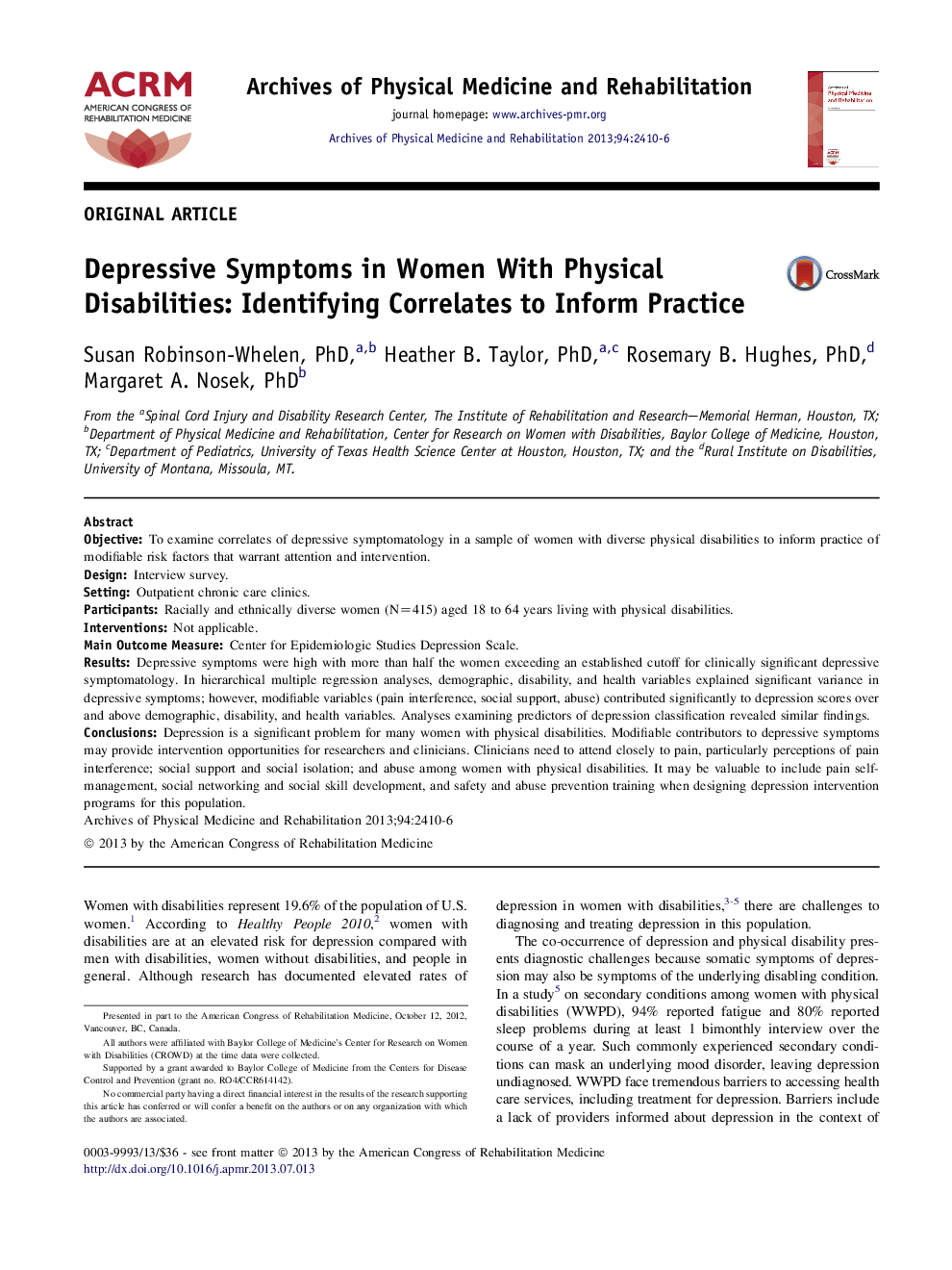| Article ID | Journal | Published Year | Pages | File Type |
|---|---|---|---|---|
| 3448998 | Archives of Physical Medicine and Rehabilitation | 2013 | 7 Pages |
ObjectiveTo examine correlates of depressive symptomatology in a sample of women with diverse physical disabilities to inform practice of modifiable risk factors that warrant attention and intervention.DesignInterview survey.SettingOutpatient chronic care clinics.ParticipantsRacially and ethnically diverse women (N=415) aged 18 to 64 years living with physical disabilities.InterventionsNot applicable.Main Outcome MeasureCenter for Epidemiologic Studies Depression Scale.ResultsDepressive symptoms were high with more than half the women exceeding an established cutoff for clinically significant depressive symptomatology. In hierarchical multiple regression analyses, demographic, disability, and health variables explained significant variance in depressive symptoms; however, modifiable variables (pain interference, social support, abuse) contributed significantly to depression scores over and above demographic, disability, and health variables. Analyses examining predictors of depression classification revealed similar findings.ConclusionsDepression is a significant problem for many women with physical disabilities. Modifiable contributors to depressive symptoms may provide intervention opportunities for researchers and clinicians. Clinicians need to attend closely to pain, particularly perceptions of pain interference; social support and social isolation; and abuse among women with physical disabilities. It may be valuable to include pain self-management, social networking and social skill development, and safety and abuse prevention training when designing depression intervention programs for this population.
